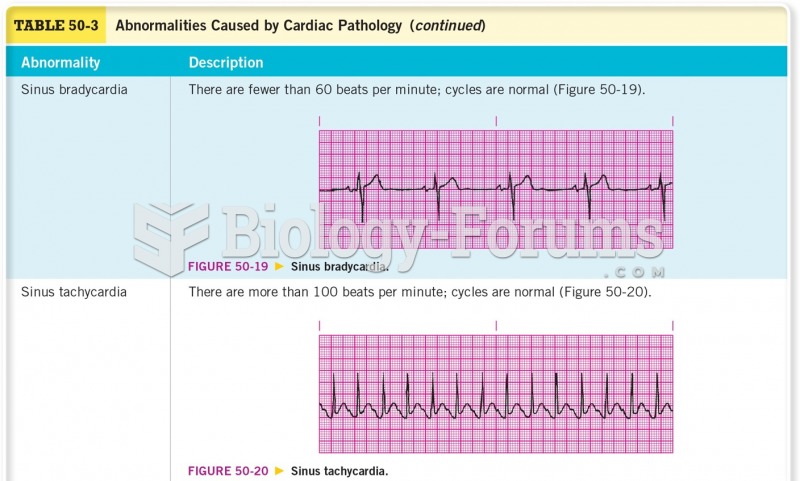This topic contains a solution. Click here to go to the answer
|
|
|
Did you know?
The immune system needs 9.5 hours of sleep in total darkness to recharge completely.
Did you know?
Women are 50% to 75% more likely than men to experience an adverse drug reaction.
Did you know?
Asthma cases in Americans are about 75% higher today than they were in 1980.
Did you know?
The longest a person has survived after a heart transplant is 24 years.
Did you know?
Nearly all drugs pass into human breast milk. How often a drug is taken influences the amount of drug that will pass into the milk. Medications taken 30 to 60 minutes before breastfeeding are likely to be at peak blood levels when the baby is nursing.







